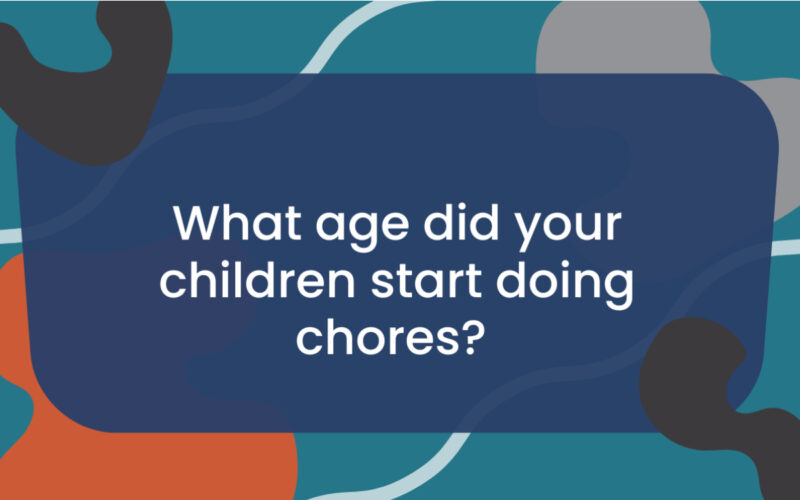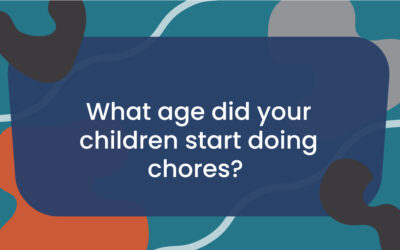We don’t have kids for the sole purpose of passing on chores to them. However, it is nice when they’re old enough to start cleaning up after themselves and helping out around the house.
A common question we get in our Dad community is, “What age should my kids start doing chores?” and the follow-up to that one: “What are age-appropriate chores?”.
We’ve rounded up some popular answers from our in-the-know Lead Dads:
2-4 years old was by far the most popular age group given to start introducing chores to children. Some of those tasks included:
- Picking up after themselves (especially in common areas)
- Helping put some of the dishes away
- Vacuuming (this one is easier if you have a smaller/lighter vacuum!)
- Cleaning their rooms
- Helping to feed pets
- Wiping surfaces down and dusting
- Helping prepare dinner (measuring, adding ingredients, etc.)
- Putting laundry away
- Assisting in yard work (bagging grass or leaves—after a proper jump in the pile of course!)
For 6-11 years old parents started having their kids help with:
- Laundry (start to finish, though supervised at first)
- Picking up after the dogs outside (you know what we mean, don’t make us say the word, well, okay, poop!!!)
- Yard work (this included the normal bagging of grass and leaves but also mowing)
- Shoveling snow
- Dishes (unloading and loading)
- Cooking (this is meant more for the end of this age range)
Once kids hit the tween and teen years, chores can serve a dual purpose: to contribute to the family but also to pull them outside of themselves. They may not be as eager to please as their 4-year-old selves were but they’re getting closer to age where they’re going to have to figure out life more on their own. Here are some additional responsibilities for them:
- Watching younger siblings
- Walking dogs and being responsible for general pet care
- Driving siblings – in exchange for access to a car!
Overall, as children mature, most parents build upon existing tasks, rather than add totally new chores. This charts a child’s intellectual and physical growth.
In terms of keeping track and compensation, some parents kept a weekly/monthly chore chart and would reward accordingly. Others follow the work of Ron Lieber who advocates for NOT paying for chores in his book “The Opposite of Spoiled”. After all, no one pays parents to take out the trash or wash the dishes.
The consensus from the parents we spoke to was less about passing off household responsibilities to their children but rather instilling hard work, personal responsibility, and building critical life skills.
Stay up-to-date on topics like this, and more, by subscribing to <b>“The Dad”</b>, our weekly newsletter!









